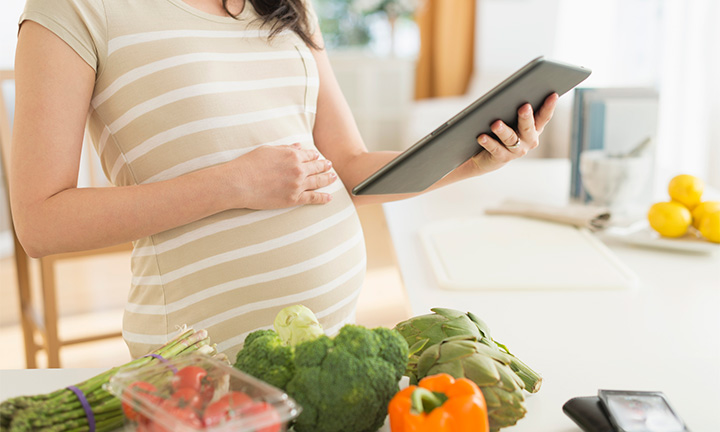Family planning is an important decision at any stage of life, but for women over 30, it often comes with unique considerations. Whether you’re thinking about having children, delaying pregnancy, or exploring long-term birth control options, understanding your choices can help you make the best decision for your health and future.
Recommended: Family Planning Options for Couples Over 35
As fertility naturally changes with age, planning ahead becomes even more essential. Fortunately, there are many options available—from hormonal and non-hormonal birth control to fertility preservation and family planning methods that align with your personal and career goals.
In this blog, we’ll explore everything you need to know about family planning after 30, helping you navigate this journey with confidence and clarity.
Understanding Family Planning After 30
Family planning after 30 is about making informed choices regarding pregnancy, birth control, and reproductive health. Fertility naturally declines with age, but many women can still conceive without issues. Maintaining a healthy lifestyle, managing stress, and having regular medical checkups can improve reproductive health.

If pregnancy is not an immediate goal, there are various birth control options to consider, including hormonal and non-hormonal methods. For those who want to delay childbirth, fertility preservation methods like egg freezing can be an option. Every woman’s journey is different, and consulting a healthcare provider can help in making the best decisions for the future.
Fertility in Your 30s: What You Need to Know
Fertility naturally declines in your 30s, but many women can still get pregnant and have healthy babies. In the early 30s, the chances of conceiving are still high, but by the mid-to-late 30s, the number and quality of eggs decrease, making it a bit harder to get pregnant.
Recommended: 6 Family Planning Tips for Women with PCOS
Living a healthy lifestyle can help support fertility. Eating nutritious foods, exercising, reducing stress, and avoiding smoking or excessive alcohol can improve reproductive health. Tracking ovulation and going for regular medical checkups can also increase the chances of conception.
For those who aren’t ready for pregnancy yet, options like egg freezing or IVF can help preserve fertility for the future. While age affects fertility, many women still have successful pregnancies in their 30s with proper planning and care. Talking to a doctor can help in making the best decisions based on individual health and goals.
Birth Control Options for Women Over 30
Choosing the right birth control after 30 is important for managing reproductive health, whether you’re preventing pregnancy, spacing out births, or considering long-term options. At this stage, factors like lifestyle, health conditions, and future pregnancy plans play a key role in selecting the best method.
Birth Control Options to Consider:
- Hormonal Methods: Birth control pills, patches, injections, and hormonal IUDs regulate hormones to prevent pregnancy. They also help with menstrual cycle control and hormonal balance.
- Non-Hormonal Options: Copper IUDs, condoms, and diaphragms provide effective birth control without affecting hormone levels.
- Long-Acting Reversible Contraceptives (LARCs): IUDs and implants offer long-term protection (3–10 years) without requiring daily attention.
- Permanent Solutions: Tubal ligation (getting the fallopian tubes tied) or partner vasectomy are options for women who are certain they don’t want more children.
- Natural Family Planning: Tracking ovulation and fertility cycles can help avoid pregnancy, but this method requires discipline and accuracy.
Recommended: Creighton Method of Natural Family Planning
Every woman’s body and needs are different. Consulting a healthcare provider can help determine the best birth control method based on individual health, lifestyle, and future plans.
Managing High-Risk Pregnancy After 30
A high-risk pregnancy after 30 means there may be increased health concerns for both the mother and baby. However, with the right medical care and lifestyle choices, many women experience smooth and successful pregnancies. While age alone doesn’t necessarily make a pregnancy high-risk, certain factors—such as pre-existing health conditions, lifestyle habits, multiple pregnancies, or complications from previous pregnancies—can contribute to higher risks. Key Factors to Consider:
1. Regular Prenatal Checkups
Frequent visits to a healthcare provider are essential to track the baby’s development, manage any potential risks, and ensure both mother and baby stay healthy throughout the pregnancy.
2. Healthy Lifestyle Choices
Maintaining a well-balanced diet rich in essential nutrients, engaging in safe and moderate physical activity, managing stress levels, and avoiding smoking, alcohol, and excessive caffeine intake can help reduce complications.

3. Managing Pre-Existing Conditions
Women with conditions like diabetes, high blood pressure, heart disease, or thyroid disorders should work closely with their doctors to keep their conditions under control and reduce pregnancy-related risks.
Recommended: Can I Take Birth Control After Wisdom Teeth Removal?
4. Genetic Testing & Screening
As the risk of genetic abnormalities slightly increases with age, doctors may recommend prenatal screening tests, such as ultrasound scans, amniocentesis, or non-invasive prenatal testing (NIPT), to detect potential birth defects or chromosomal disorders early.
5. Monitoring for Pregnancy Complications
Women over 30 are at a higher risk for complications such as gestational diabetes, preeclampsia, preterm labor, or placental problems. Early detection and management of these conditions can improve pregnancy outcomes.
Although high-risk pregnancies require extra attention, many women in their 30s go on to have healthy pregnancies and deliveries. Consulting with a healthcare provider early, following a personalized care plan, and adopting a healthy lifestyle can greatly improve the chances of a smooth and successful pregnancy.
Permanent Birth Control Options for Women Over 30
For women over 30 who are certain they don’t want more children, permanent birth control provides a long-term solution without the need for ongoing contraception. These methods are highly effective and eliminate the worry of unplanned pregnancy.
Recommended: Can You be on Birth Control and Donate Eggs?
Common Permanent Birth Control Methods
- Tubal Ligation (Getting Your Tubes Tied): A surgical procedure that involves cutting, tying, or sealing the fallopian tubes to prevent eggs from reaching the uterus. It is a highly effective and typically irreversible form of contraception.
- Tubal Occlusion: A non-surgical alternative where small implants are inserted into the fallopian tubes, creating a blockage that prevents pregnancy.
- Hysterectomy: A surgical procedure to remove the uterus, often performed for medical reasons, which also results in permanent infertility.
- Partner Vasectomy: A less invasive option where the male partner undergoes a minor surgical procedure to block sperm from being released during ejaculation.
Things to Keep in Mind
- These methods are permanent, so they should only be considered if you’re completely sure about not having more children.
- Some procedures require recovery time, though most are quick and safe.
- It’s important to consult a doctor to discuss the risks, benefits, and possible alternatives before making a final decision.
Permanent birth control can provide long-term peace of mind, making it a great choice for women who are ready to take this step.
The Best Time to Conceive in Your 30s
Fertility naturally declines with age, but many women in their 30s can still conceive and have healthy pregnancies. The early 30s offer a higher chance of conception with fewer complications, while the mid-to-late 30s may require more planning and medical guidance.

Things to Keep in Mind:
- In Your Early 30s (30-34): Fertility remains strong, and pregnancy risks are relatively low, making this an ideal time to conceive.
- In Your Mid-to-Late 30s (35-39): Fertility gradually declines, and there may be a higher risk of complications like gestational diabetes or high blood pressure, but natural conception is still possible for many women.
Recommended: How To Prepare Financially And Emotionally For Family Planning
How to Boost Fertility:
- Track Ovulation to identify the most fertile days.
- Maintain a Healthy Lifestyle with a balanced diet, exercise, and avoiding smoking or excessive alcohol.
- Visit a Doctor Regularly to monitor reproductive health and address any concerns.
- Explore Fertility Options like medical evaluations or treatments if conception is difficult after six months of trying, especially after 35.
With proper care and planning, many women in their 30s successfully conceive and have smooth pregnancies.
Conclusion
Family planning in your 30s requires careful consideration of fertility, health, and long-term goals. While fertility naturally declines with age, many women can still conceive and have healthy pregnancies with the right lifestyle choices and medical guidance. Understanding different birth control options, managing pregnancy risks, and seeking professional advice can help make informed decisions.
Whether planning to conceive, prevent pregnancy, or explore permanent birth control, consulting a healthcare provider ensures the best approach for individual needs. With the right preparation, women over 30 can take control of their reproductive health and make choices that align with their future.
